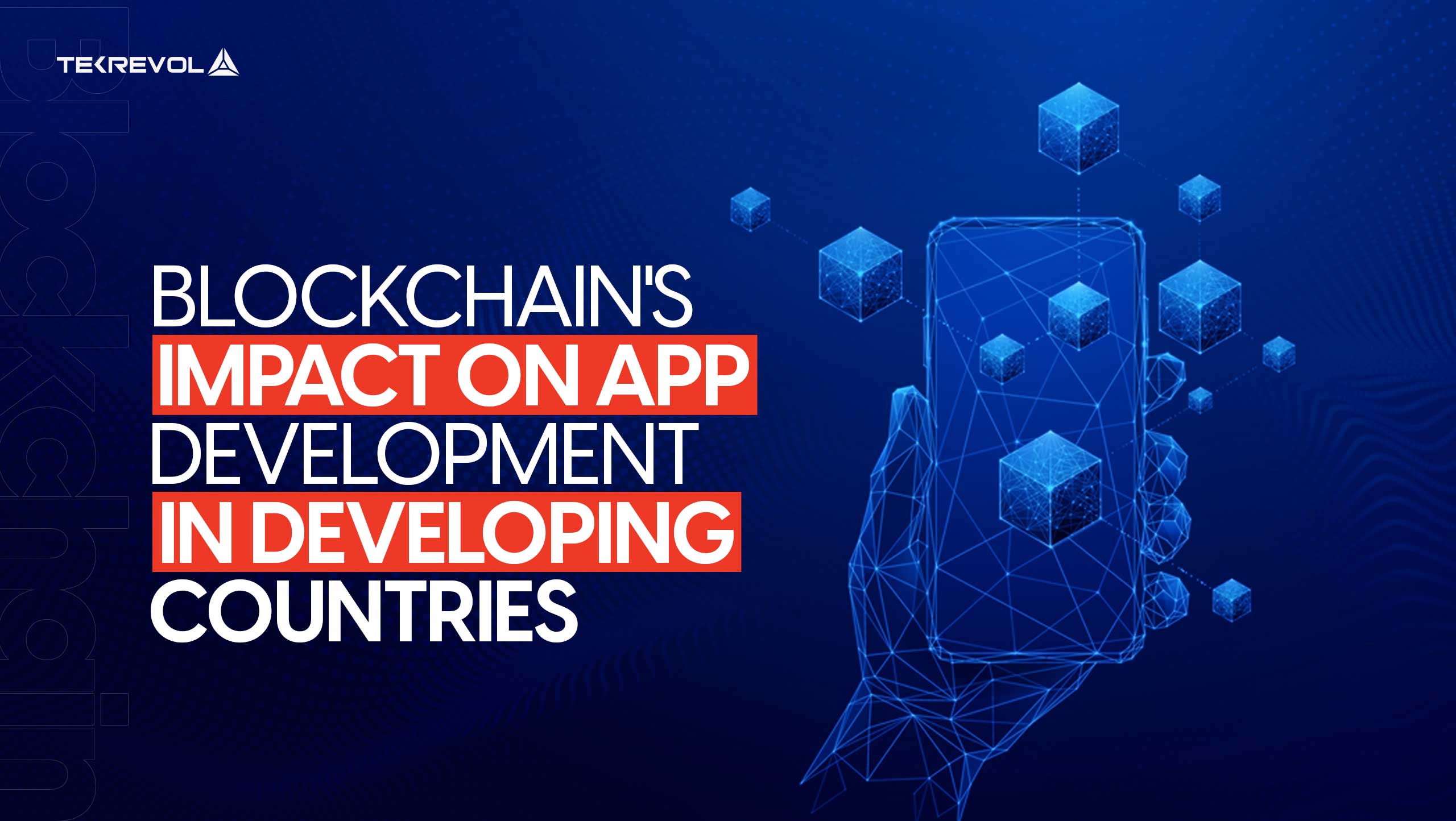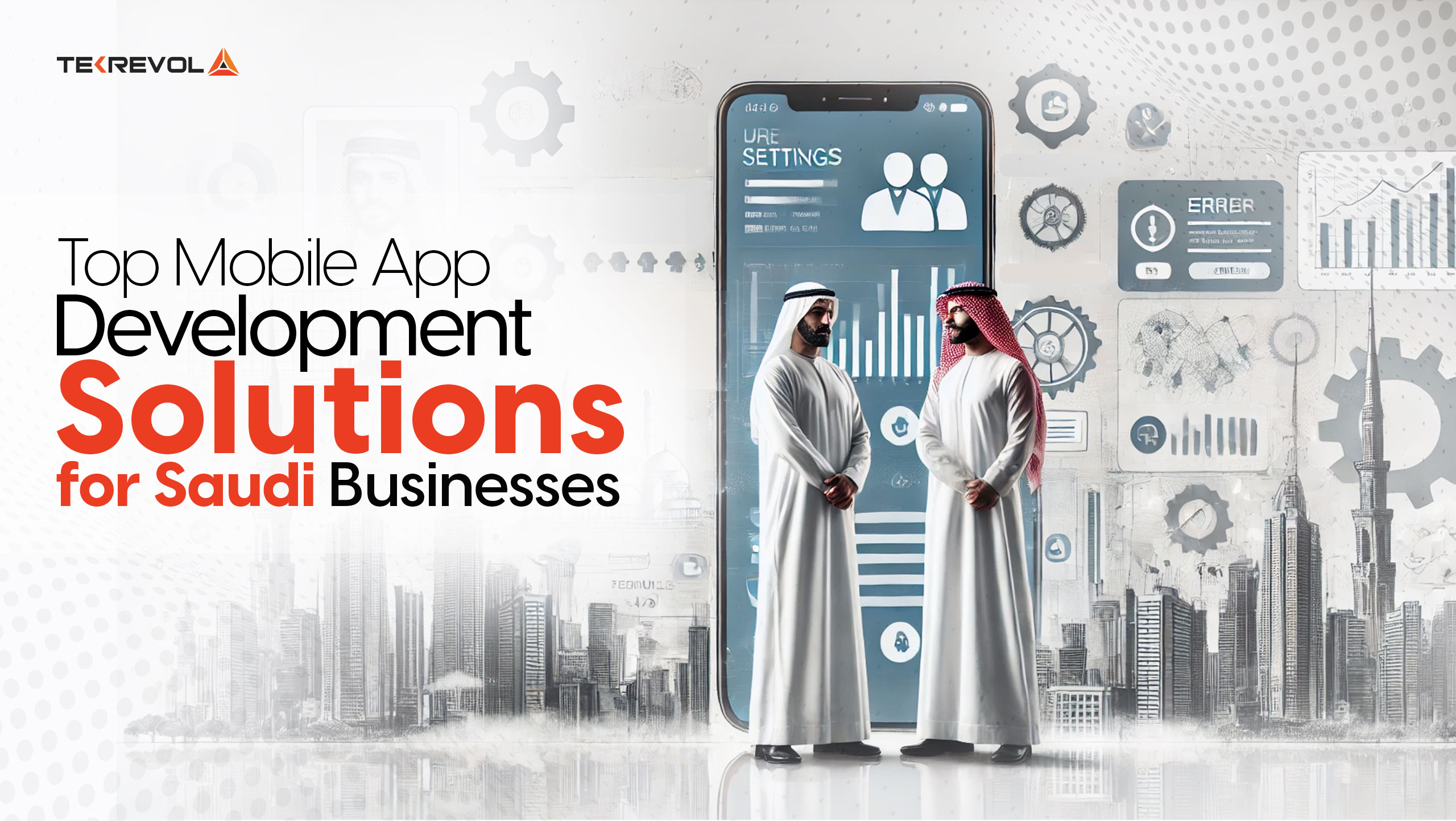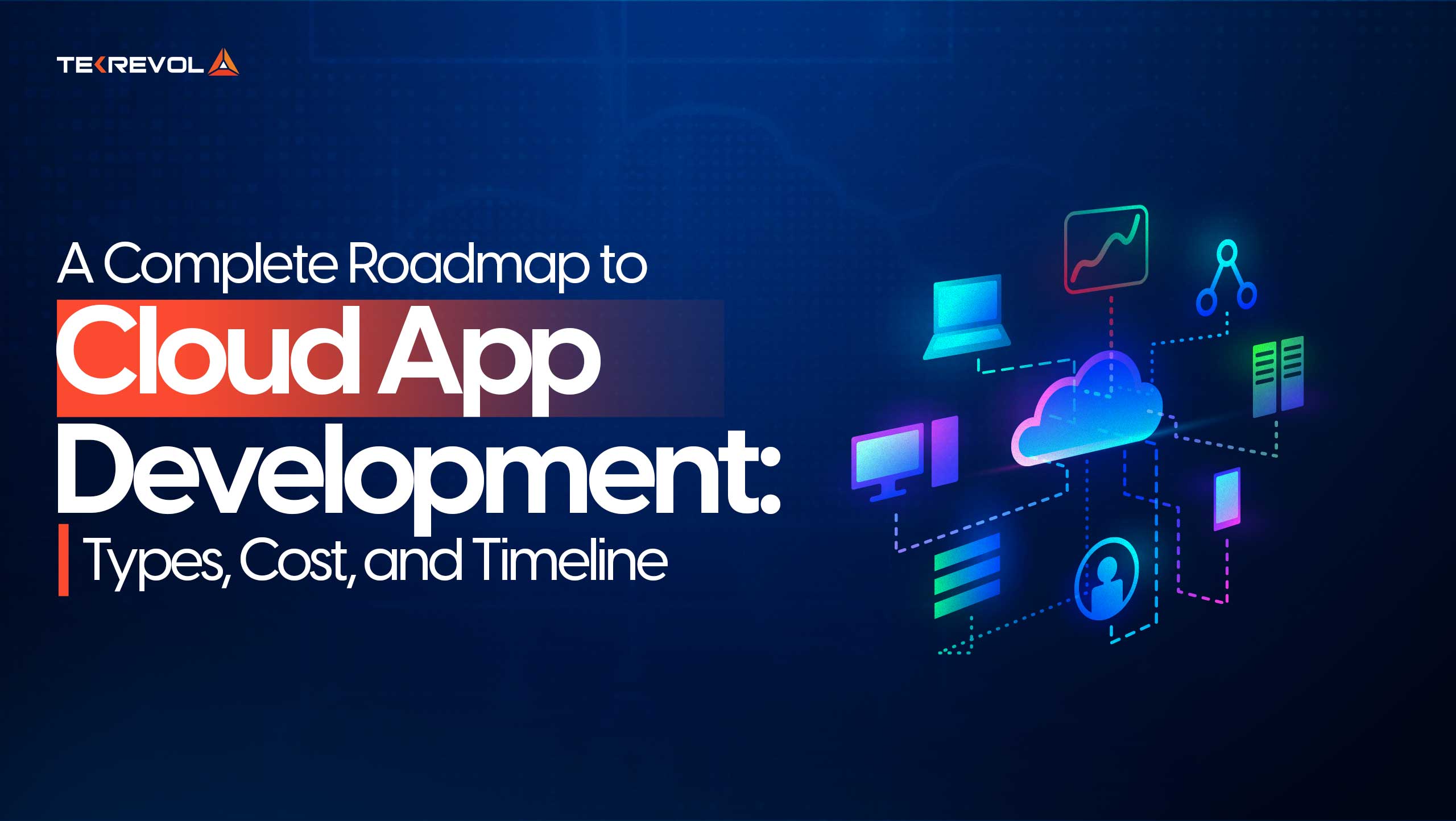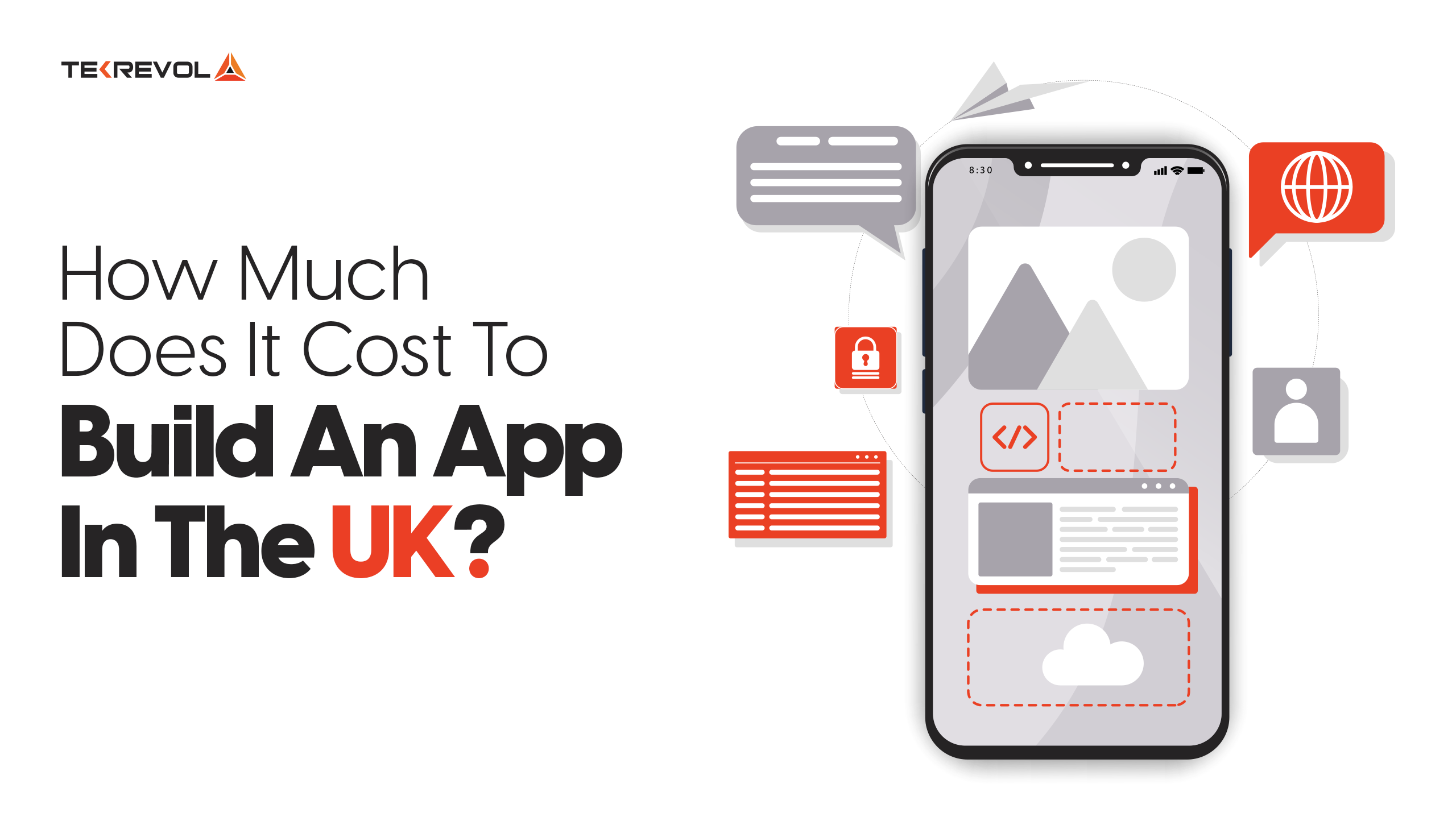Sending your payments by just one tap with your mobile app would have been a dream back in the early 2000s but today most businesses can’t work without online transactions. With 255 billion mobile apps being downloaded globally, 50% of the web traffic comes from mobile devices. Such an increasing demand for mobile apps calls for secure and efficient development and distribution methods. Blockchain technology has emerged as a transformative force to create decentralized, transparent, reliable, and secure apps, particularly in developing countries.
Keep reading to find out the blockchain’s impact on app development in developing countries.
About Blockchain Technology
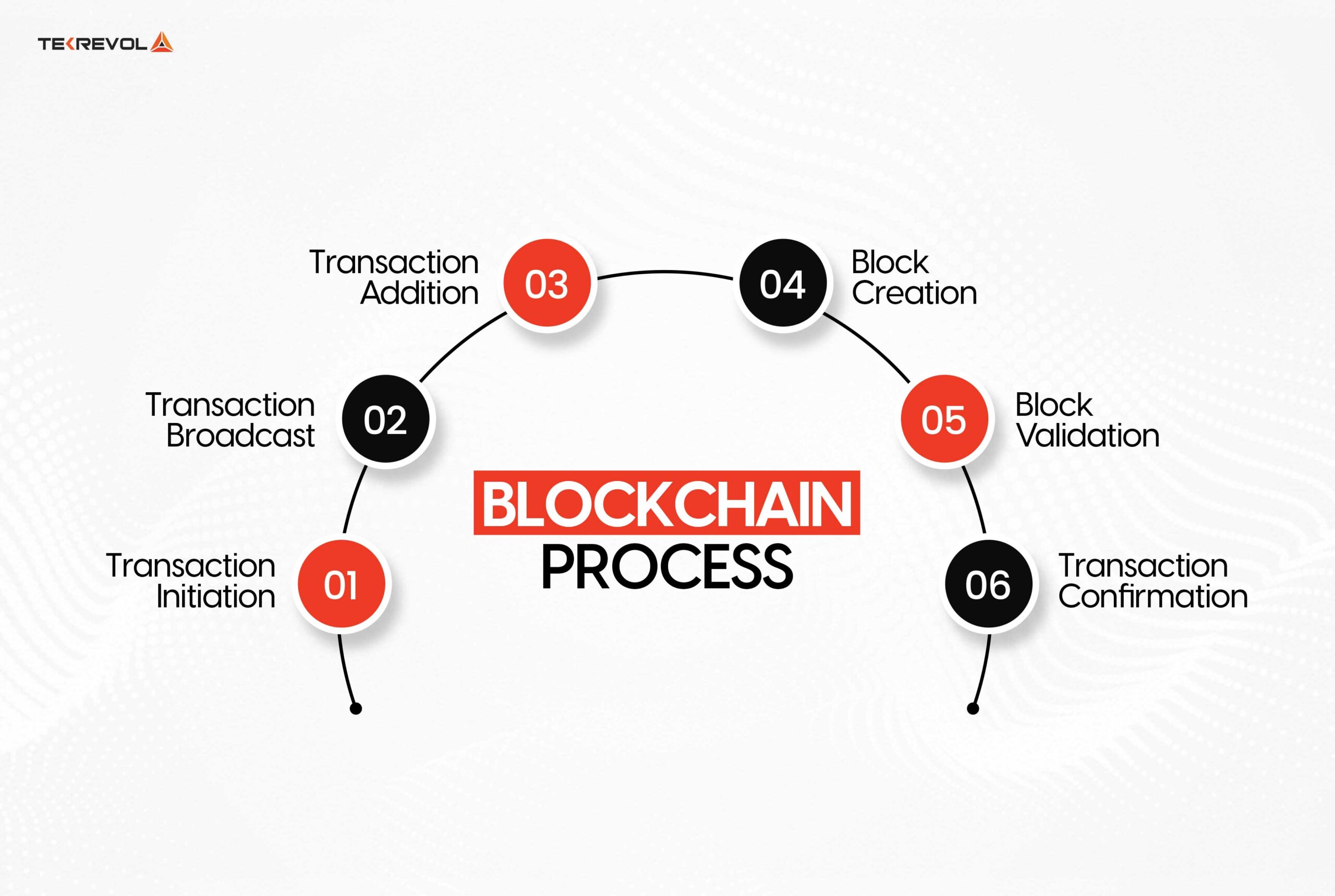
Blockchain technology is a system for recording information in a way that makes it difficult or impossible to change, hack, or cheat the system. Unlike traditional databases, blockchain stores data in decentralized ledgers across a network of computers.
Each “block” contains records of transactions, and these blocks form a “chain” that can’t be tampered with or adjusted through any virtual technique. You don’t need extensive security channels for developing such apps, even an iOS app developer in Miami or an Android developer in Delaware can easily integrate blockchain technology into their apps. So, if security and transparency are your priority for developing mobile apps then you should integrate blockchain technology.
Advantages of Blockchain Integration in Mobile App Development
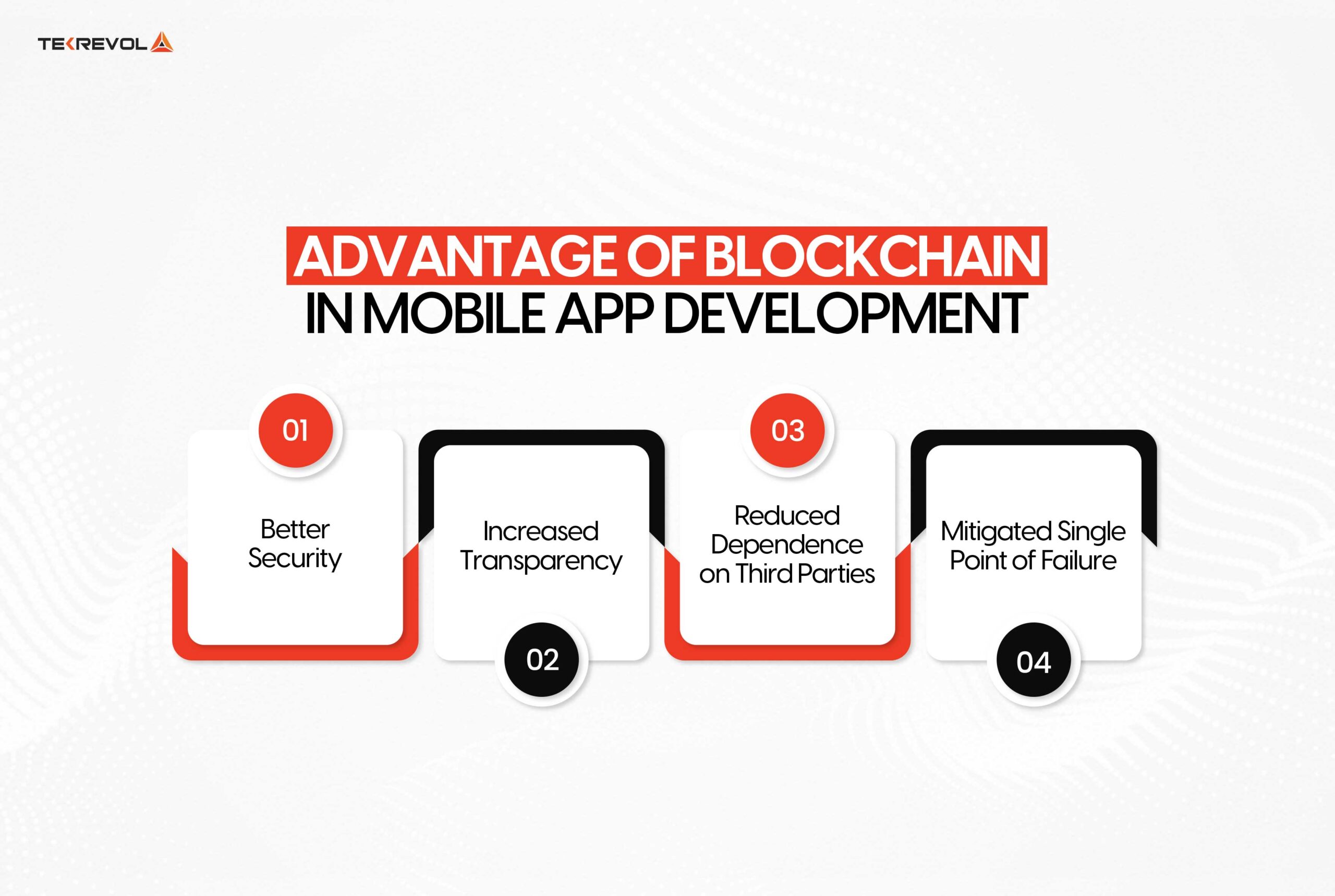
Since blockchain technology is a relatively new approach to mobile development, you must know what benefits it brings to your already existing development approach. Following are a few of the many blockchain benefits:
Better Security
Blockchain’s decentralized nature and encryption capabilities provide impenetrable security against cyber threats. In developing countries where cyber infrastructure might not be as advanced, it guarantees that all your user data remains secure. Moreover, the security aspect of blockchain technology also helps in regions where data breaches and cyber-attacks can have devastating consequences.
Increased Transparency
Blockchain offers a transparent environment for transactions, building trust and accountability between users and app providers. For developing countries where people are often skeptical about digital transactions and view them as a source of scams, you need to be clear and authentic with your mobile app. Users can verify transactions and see that their data is not being misused, which builds confidence in the technology.
- Curious about how blockchain can change your app development?
- Partner with our Miami team for innovative solutions.
- Contact us today
Reduced Dependence on Third Parties
Blockchain enables developers to reduce reliance on intermediaries, cutting costs and enhancing efficiency. Mostly in developing countries, you can’t get third-party services or even if you get them it would be expensive and unreliable. By eliminating the middleman, transactions become faster and more affordable, necessary for both businesses and consumers.
Mitigated Single Point of Failure
Since blockchain is decentralized in nature, the risk of a single point of failure is negligible which makes the system resilient to attacks and data breaches. You can maintain consistent service because of the reliability of failure points. In environments where technological infrastructure may be fragile, blockchain offers a strong suite of protection to maintain continuous service and data integrity.
Overcoming Challenges for Widespread Adoption
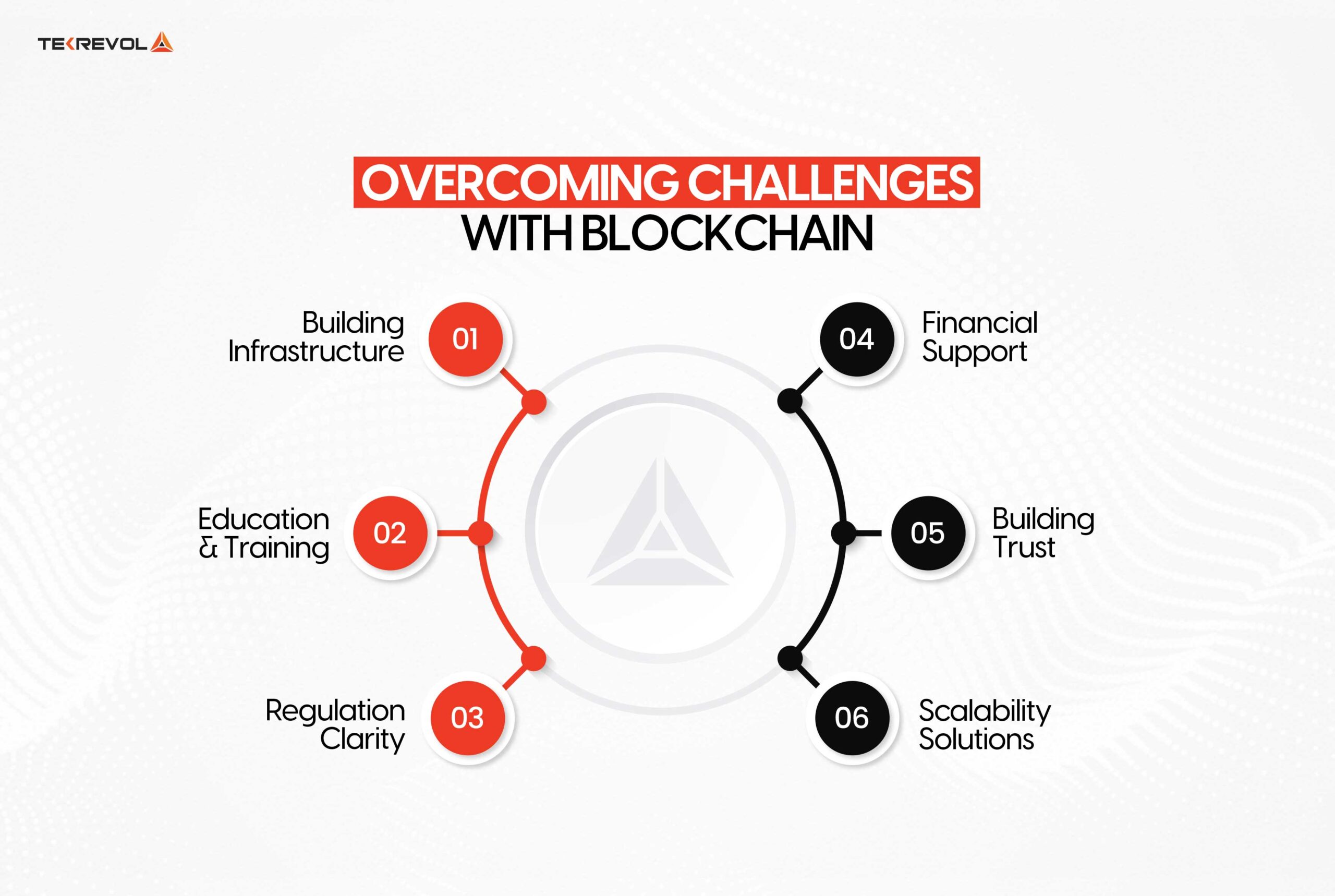
To fully realize the benefits of blockchain technology in developing countries, several steps can be taken to overcome existing challenges:
Building Infrastructure
Everything is running on the internet these days and there’s a need to invest in strong internet connection and reliable power infrastructure in developing countries. Governments and private sectors must collaborate to build the necessary foundations that support blockchain applications. Public-private partnerships can help speed up infrastructure development so that even remote areas have access to the digital economy.
Education and Training
Educational initiatives focused on blockchain technology can help create a knowledgeable workforce. Universities, technical institutes, and online platforms can offer courses and certifications in blockchain development. Additionally, businesses can provide training programs to upskill employees, equipping them to work with blockchain solutions.
Regulatory Clarity
The system goes down the hill, only if there aren’t clear and citizen-friendly regulatory bodies. Similarly, to introduce blockchain to developing countries, there is a need to build clear and supportive frameworks directed towards innovation. Policymakers should work with industry stakeholders to create regulations that protect users while encouraging blockchain adoption. Regulations should address issues such as data privacy, cybersecurity, and the legal status of cryptocurrencies, providing a stable environment for businesses to operate.
Financial Support
The main problem when introducing new technology in most developing countries is funding. Governments and international organizations can offer grants, subsidies, and low-interest loans to support blockchain projects. Venture capital and crowdfunding can also provide alternative financing options for startups and small businesses exploring blockchain solutions.
Building Trust
You can’t establish the trust of users in blockchain technology by writing long paragraphs and presenting long speeches describing the benefits. The best way is to demonstrate those benefits through real-world applications for lasting impact. Pilot projects and case studies can showcase successful implementations, helping to dispel skepticism and build confidence among users. Engaging with communities and addressing their concerns transparently can further enhance trust in blockchain solutions and promote technological innovation.
Scalability Solutions
Ongoing research and development efforts are focused on improving the scalability of blockchain networks. Solutions such as sharding, layer 2 protocols, and new consensus algorithms aim to increase transaction throughput and reduce latency. As these technologies mature, they will enable blockchain to handle larger volumes of transactions, making it suitable for various uses in developing countries and driving tech advancement.
The Role of Blockchain in Promoting Sustainable Development
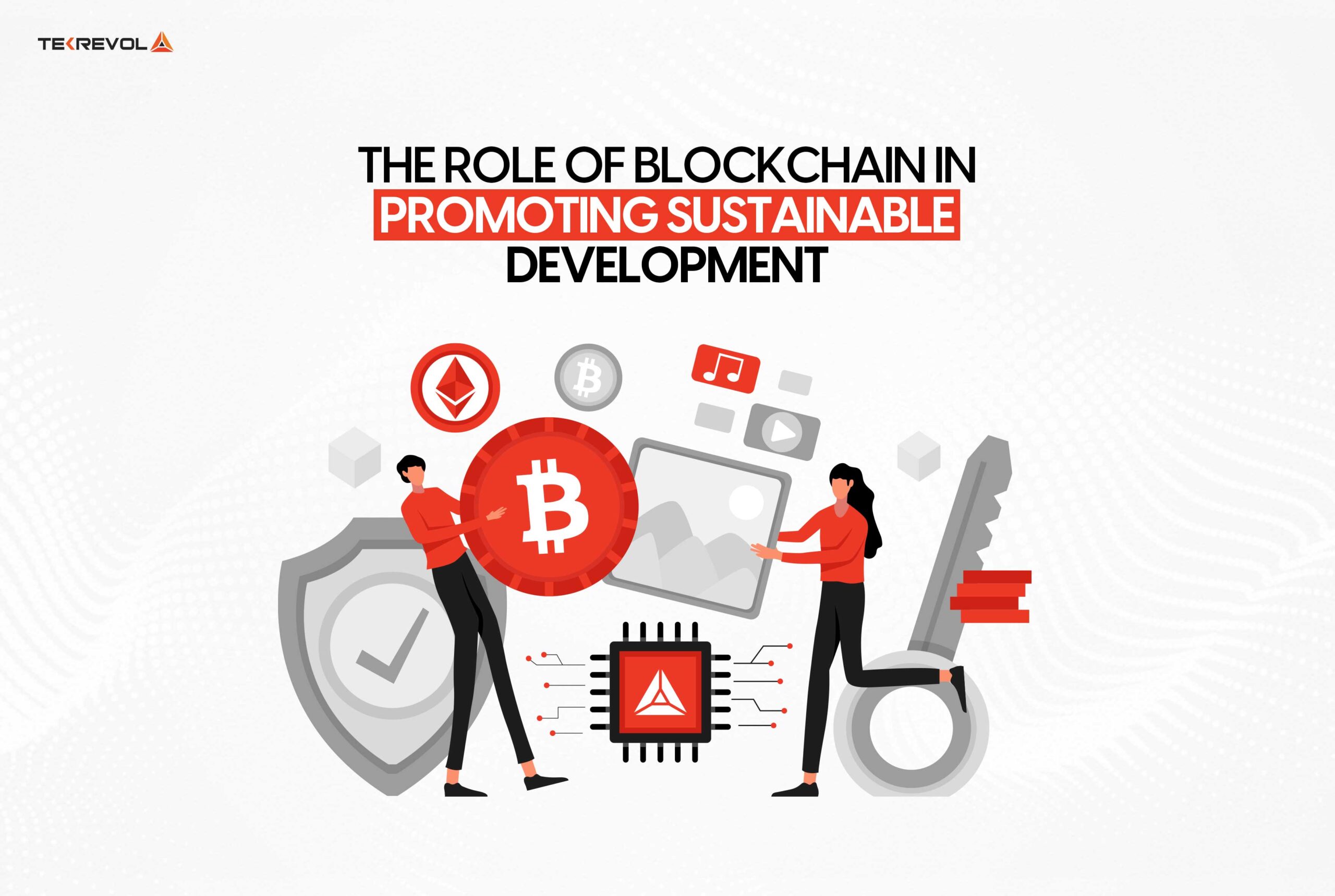
As you know sustainable development goals are a part of the United Nations’ plan for developing countries, blockchain technology can also help promote those goals. Here’s how it can contribute to sustainable development:
Financial Inclusion
Blockchain can help achieve SDG 1 (No Poverty) and SDG 8 (Decent Work and Economic Growth) by providing financial services to underserved populations. Decentralized finance (DeFi) platforms can offer banking services, microloans, and savings accounts that can introduce economic participation and growth.
Quality Education
Blockchain-based credentialing systems can assess the authenticity of educational qualifications, supporting SDG 4 (Quality Education). By providing verifiable digital certificates, blockchain can help individuals get high-end education and employment opportunities.
Gender Equality
Blockchain can promote gender equality (SDG 5) by providing women with secure access to financial services, land rights, and identity verification. It helps to encourage women to participate in economic activities and avail their lawfully essential rights.
Clean Energy
Blockchain can support SDG 7 (Affordable and Clean Energy) by enabling peer-to-peer energy trading and transparent supply chains for renewable energy projects. With blockchain, clean energy reaches underserved communities efficiently.
Responsible Consumption and Production
Blockchain enhances supply chain transparency, contributing to SDG 12 (Responsible Consumption and Production). It evaluates the sourcing medium, reduces waste, and scrutinizes counterfeit goods by tracking products from source to consumer.
Applications of Blockchain in Mobile App Development
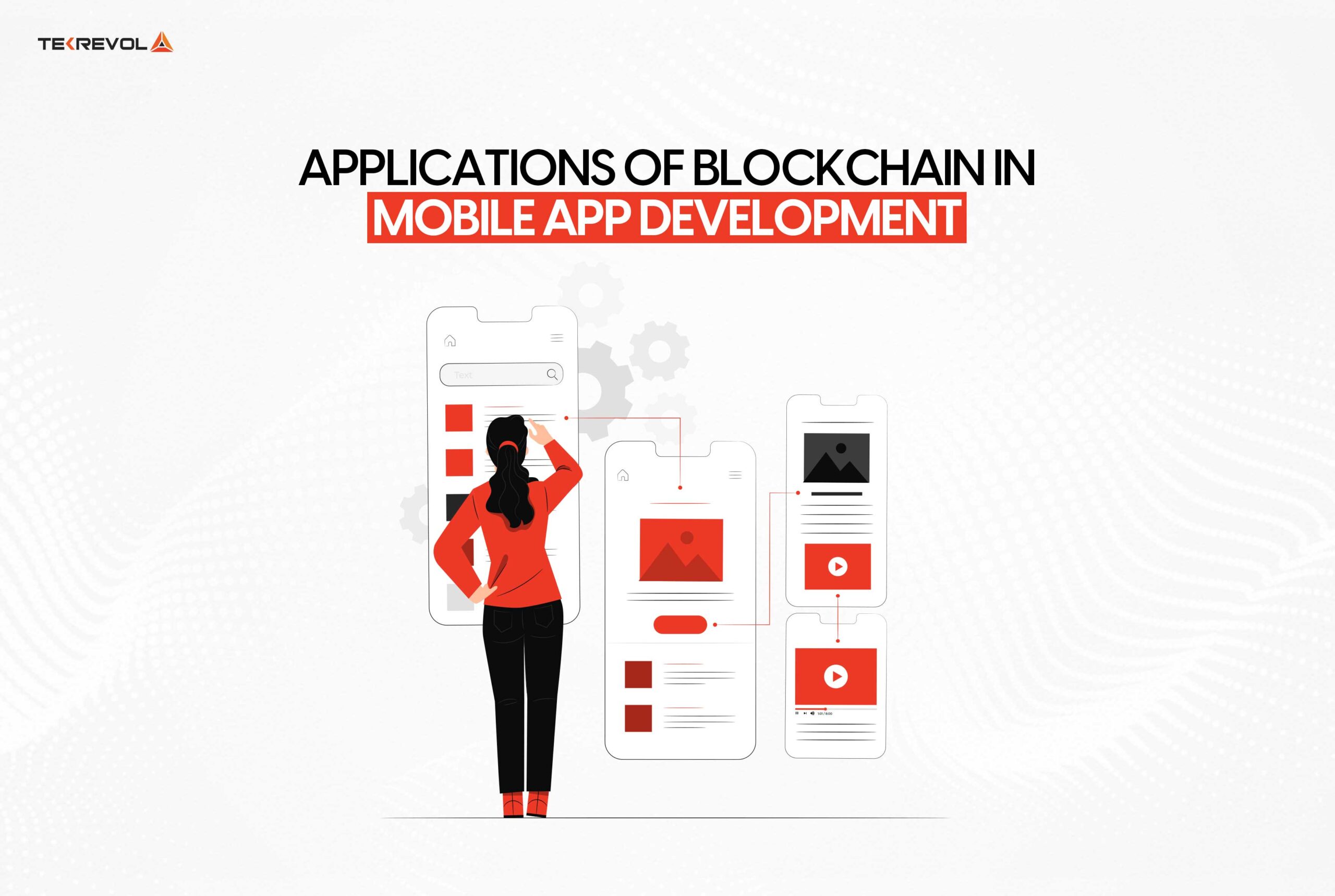
The biggest advantage of blockchain technology is to maintain transparency and improve the security of mobile apps. Here’s how it can be integrated into mobile applications:
User Authentication
Blockchain can improve user authentication processes by removing traditional username and password systems, which are vulnerable to attacks. Instead, decentralized public-private key pairs can verify user identities securely. Using this method, developers can reduce the risk of identity theft and unauthorized access, allowing only legitimate users to access sensitive information.
Data Encryption
Mobile apps that are sensitive to data privacy can easily use blockchain technology for its encryption capabilities. Developers encrypt data and store it on the blockchain for authorized access to the information. The decentralized nature of blockchain also prevents a single point of failure, reducing the risk of data breaches. Apps that handle sensitive data, such as financial or healthcare information can be the focal point of blockchain technology.
Secure Payment Transactions
Blockchain allows for secure transactions without intermediaries like banks or payment gateways. Using cryptocurrencies or blockchain-based tokens, transactions become transparent, efficient, and less susceptible to fraud. Since traditional banking services may be limited or unreliable in developing countries, blockchain security is beneficial to be integrated while developing apps.
Blockchain Platforms for Decentralized Mobile App Development
Several blockchain platforms are designed to support mobile app development. Following blockchain platforms provide tools and resources for developers to create innovative and secure mobile apps:
Ethereum
Ethereum is a widely used blockchain platform for developing decentralized mobile apps. It features a programmable blockchain with its own programming language, Solidity, allowing developers to create smart contracts and decentralized applications (DApps). Ethereum’s versatility, support for cryptocurrency transactions, and large developer community make it an attractive option for mobile app developers.
EOS
Electro-Optical System or EOS offers high scalability and user-friendliness, essential for app developers. Its unique architecture allows parallel execution of smart contracts, enabling high transaction throughput. EOS also includes features like account recovery and role-based permissions, which enhance user experience and security. These capabilities make EOS a strong contender for developing large-scale mobile apps.
Hyperledger Fabric
Hosted by the Linux Foundation, Hyperledger Fabric is an open-source blockchain platform meant for enterprise-level decentralized applications. Its flexible architecture and permissible network make it suitable for creating scalable and secure mobile apps. Hyperledger Fabric’s modular design allows developers to customize the platform according to specific business requirements, making it ideal for complex applications making digital transformation.
The Future of Mobile App Development with Blockchain
As blockchain technology matures and gains acceptance, its adoption in mobile app development is expected to rise. With inherent security and privacy features, integrating blockchain into mobile apps will likely become a standard practice.
If your business wants to beat the competition and stay relevant then the only way is to adapt the latest technology. Whether you’re managing a mobile app development company Miami or working as an individual app developer, you can boost security, build trust, and deliver a smooth user experience to your clients. Offering secure and transparent services will set you apart in the crowded mobile app development industry.
- Ready to transform your app with blockchain?
- Speak with an expert iOS app developer in Miami!
- Connect Now.
Summing Up
Blockchain technology is ready to change mobile app development by improving security and introducing transparency, and efficiency in developing countries. Despite issues like poor infrastructure, lack of education, and financial constraints, blockchain brings valuable benefits for digital change and innovation. As blockchain startups and fintech solutions expand, the future of app development in these areas looks bright. Adapting the latest technologies like blockchain, even developing countries can drive economic growth and build a more secure, fair digital economy.

 1836 Views
1836 Views August 12, 2024
August 12, 2024